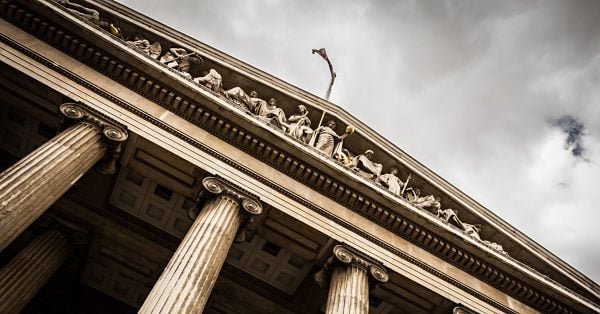Now I Support Government Funding of Religious Schools (Not) *Satire Warning*
*Note: I had to put “satire warning” after the title above just because hard experience has taught me that many people are satire-challenged. Even with the strongest hints they don’t get that something is satirical. Also: IF you choose to comment on this blog post, remember that this is not a discussion board; it is a moderated blog and I will not approve and post here comments that are hostile, uncivil, vulgar, insulting, misrepresent what I wrote, go off topic, etc. Either be kind (and brief) or don’t compose and attempt to post a response. No hyperlinks! No lengthy quotations! I speak here only for myself.*
For biblical and theological reasons I have always opposed government support or persecution of religious organizations. I’m a Baptist and Baptists were in the forefront of American separation of church and state. Separation of church and state is one of the fundamentals of Baptist theology—even if some Baptists in America have abandoned that fundamental, advocating something like a theocracy in America. I have also always been a strong supporter of public schools—where they function well. But I have always supported unequivocally the IDEA of public schools funded by taxes. I have always opposed the idea of tax dollars used to directly support pervasively sectarian religious schools.
Now, however, I am changing my mind. In light of the recent SCOTUS decision my mind is changing. After all, the Supreme Court of the United States cannot be wrong, right? And Baptist doctrine needs to bow before the Supreme Court even when its decisions clearly contradict Baptist belief. Now I am a passionate advocate of tax dollars supporting even pervasively sectarian religious private schools. I look to the Supreme Court for theological guidance. I don’t like to say that, but I have to be honest. That’s clearly the case.
I strongly suspect that, given our history (of American Christians) changing our traditional beliefs based on cultural shifts, including especially high court decisions, I will be joined by millions of other Baptists (and other Christians who have believed in separation of church and state) in reaching out to governments to grab tax dollars to fund private religious schools that are pervasively sectarian.
I suspect many others will not acknowledge the reason for their change of mind and practice, but I want to be absolutely open and honest about it. The reason is the SCOTUS decision. And it will be for all my fellow Baptists (and other American Christians who previously eschewed public funding of pervasively sectarian private schools) even if they don’t admit it. They should admit it. I urge them to admit it.
Yes, yes, yes. I know what some will say. Some will argue that accepting government funding of religious schools will come with strings attached and the government will interfere in what they can teach. Perhaps. Probably. There’s always a downside to radical change in a tradition-community’s beliefs and practices, but this time it’s definitely worth it. After all, it can work the other way around. With government funds we can now better teach our privately educated children how to go about influencing government, even steering government, “our way.” Also, never mind that the government funds will go to all kinds of religious private, pervasively sectarian schools whose religious beliefs we Baptists and other Christians find abhorrent. Let’s not be blinded by this great new light from SCOTUS! We will simply close our eyes to the downsides to it. And never mind that it means we’re not really Baptists anymore—as we grab tax dollars to support our private schools (and home schooling, hopefully). Tradition doesn’t matter; change is everything. We’ll simply redefine what being “Baptist” means.
We need to admit it and stop pretending—we American Christians (including many Baptists) allow our culture to steer our beliefs and practices—even away from what we have always held dear—to the brave new world of—what comes next.













